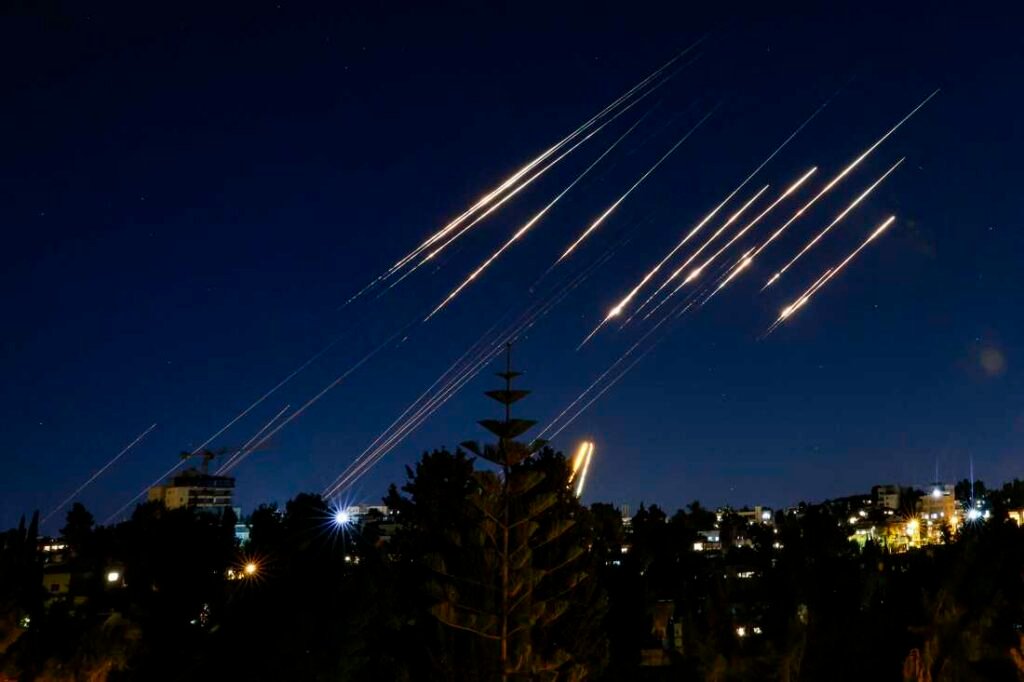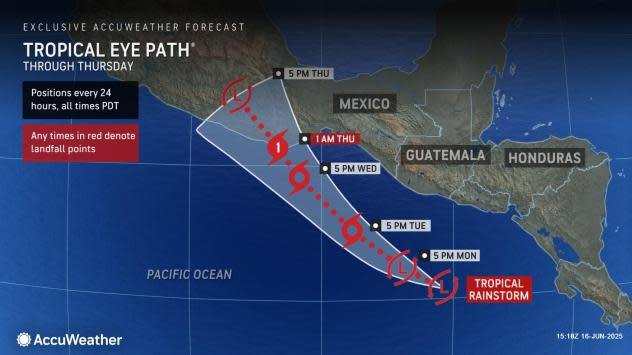WASHINGTON — President Donald Trump had opposed Israeli military action against Iran, favoring negotiations over bombing. But in the days before the strikes began, he became convinced that Israel’s heightened anxiety over Iran’s nuclear enrichment capabilities was warranted.
After a pivotal briefing from the chairman of the Joint Chiefs of Staff, Air Force Gen. Dan Caine, on Israel’s plans and U.S. options for supporting its operation, he gave tacit approval to Israel to have at it and decided to provide limited U.S. backing.
When Caine briefed him on June 8, Trump was increasingly frustrated with Iran for not responding to the latest proposal for a nuclear deal. He still remained hopeful that his Middle East peace negotiator, Steve Witkoff, who had been scheduled to conduct another round of peace talks in the region Sunday, could soon get an agreement over the line.
Trump was also facing private pressure from longtime allies who advocate more isolationist policies and wanted him to stop Israel from taking military action or at least withhold U.S. support for any such operation.
This account of Trump’s thinking leading up to the Israeli operation is based on interviews with five current U.S. officials and two Middle Eastern officials, as well as two people with knowledge of the deliberations, two former U.S officials familiar with the deliberations and a Trump ally. The White House didn’t immediately comment, and the Defense Department didn’t respond to a request for comment.
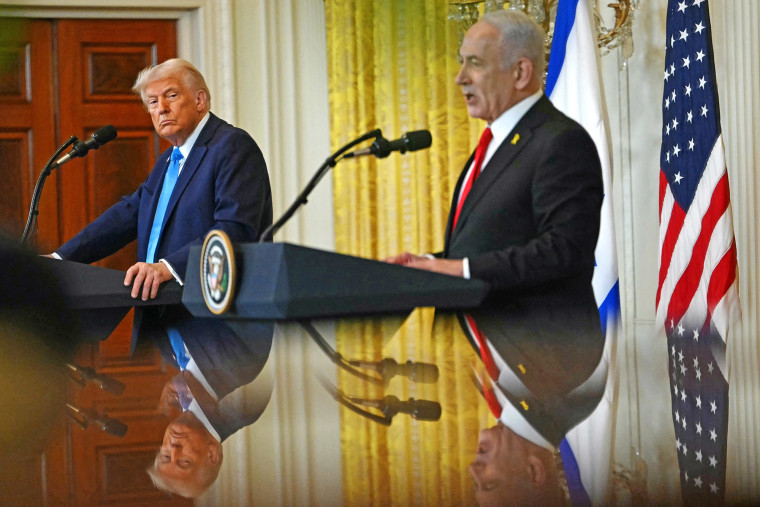
In recent weeks, Israel grew more convinced that the threat posed by Tehran was getting increasingly serious and urgent. And while he had already decided not to stand in Israel’s way, on Thursday, only hours before the strikes began, Trump remained at least publicly hopeful that diplomacy would win the day.
“I don’t want them going in, because I think it would blow it — might help it actually, but it also could blow it, but we’ve had very good discussions with Iran,” Trump told reporters at a bill signing ceremony. “I prefer the more friendly path.”
Behind the scenes, the Israelis had already laid much of the groundwork for Trump’s measured change. Trump had hoped Israeli Prime Minister Benjamin Netanyahu could be persuaded not to mount an attack. But over the past week, he came to accept that Israel was determined to neutralize Iran’s nuclear capabilities and that the United States would have to lend some military support for defensive purposes, as well as some intelligence support.
After the strikes began Thursday evening, the administration took pains to say it had provided no military assistance to Israel, and Secretary of State Marco Rubio, who is also the national security adviser, pointedly omitted any mention of U.S. support for Israel’s operations in a statement. But the administration’s public statements the next day did leave the door open to the United States’ having provided some of the kind of intelligence Israel needed to mount an attack.
Israel was able to conduct its initial strikes mostly with its own intelligence and capabilities — killing three military leaders and nine top scientists working on nuclear enrichment and destroying several nuclear enrichment sites, Israeli officials have said — but it also leaned heavily on American intelligence, bunker-buster bombs that were provided this year and air defense systems, some of which were scrambled into the region quickly in recent days.
But Trump still wouldn’t sign off on everything Israel wanted. After the start of their military campaign, the Israelis collected intelligence that could have allowed them to target and kill Iran’s supreme leader, Ayatollah Ali Khamenei. Netanyahu presented the operation to Trump, who opposed the plan altogether and wouldn’t allow the United States to participate, according to two U.S. officials. No Americans had been killed in the conflict, so Trump didn’t believe it would be appropriate to remove Khamenei, the political leader, and recommended against the Israelis’ conducting the operation, the officials said.
On Sunday, he appeared to advocate again for talks over strikes, saying on his social media platform, Truth Social: “Iran and Israel should make a deal, and will make a deal, just like I got India and Pakistan to make. … Many calls and meetings now taking place. I do a lot, and never get credit for anything, but that’s OK, the PEOPLE understand. MAKE THE MIDDLE EAST GREAT AGAIN!”
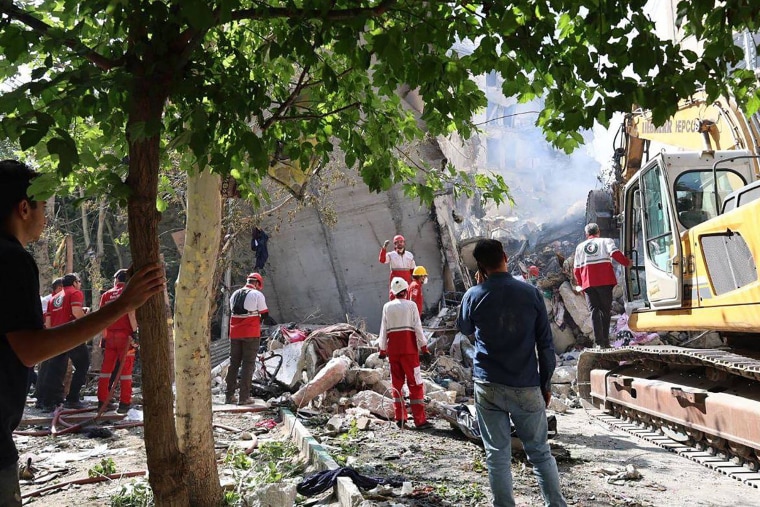
Trump’s approach to Israel’s military campaign started to take form last Sunday at Camp David, the presidential retreat in rural Maryland. By that time, Israeli officials had already begun to share extensive information with U.S. officials about their potential operation. Caine, the Joint Chiefs chairman, briefed Trump and his national security team about the Israeli plans to strike Iran and U.S. options, according to two U.S. officials and one of the people familiar with the deliberations.
Those options, the three sources said, included logistical support, like refueling Israeli jet fighters, sharing intelligence and using the American military’s electronic warfare capabilities to help Israel jam enemy weapons and communications. Another option was to provide direct military support to Israel, even having U.S. jets drop munitions in active combat alongside Israeli fighters, for example.
And yet another option, Caine briefed Trump, was to do nothing at all.
Trump has consistently said he wants to extract the United States from foreign conflicts and has sought to use diplomacy to end Russia’s war on Ukraine and the fighting in Gaza, albeit without success.
But Israel was getting anxious, and it wasn’t convinced that Trump’s plan for peace in the region would work. Netanyahu and his war Cabinet didn’t have faith in the U.S. negotiations with Iran taking place in Oman, despite Washington’s public pronouncements that a deal was close.
For months, the Trump administration has pressed the Israelis not to carry out strikes on Iran and warned that the United States wouldn’t support them if they did.
By the end of last week, the White House’s public tone started to include more support for Israel, and in private it shifted from strong opposition against a widespread military operation to acceptance that it was likely to happen and less resistance to it.
Among the reasons for Trump’s change of heart was the declaration Thursday by the United Nations’ nuclear watchdog, the International Atomic Energy Agency, that Iran was in breach of its nonproliferation requirements. Trump was also concerned by the sense coming from Israel, the United States and the IAEA that Iran had achieved leaps in its nuclear program, and he didn’t want to be the president on whose watch it was able to obtain a nuclear weapon.
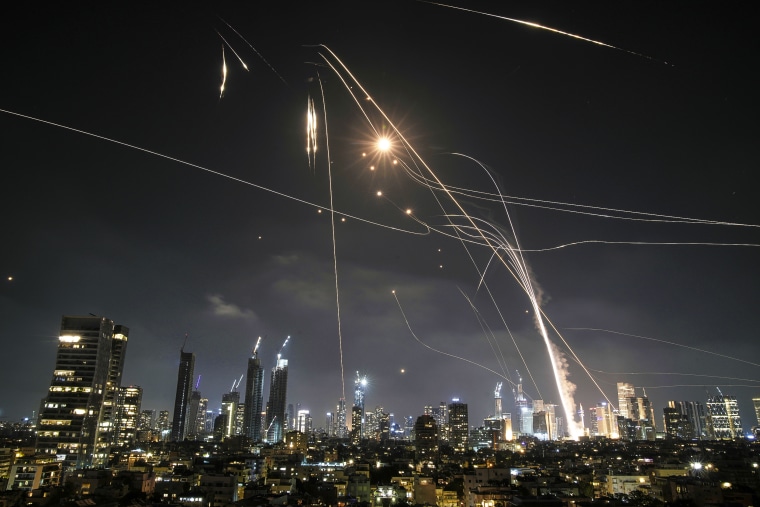
The United States had already been quietly moving some pieces into place to prepare for the Israeli attack. In recent days, U.S. European Command was told some of its P-8 Poseidon maritime patrol and reconnaissance planes would be diverted to the Middle East to conduct surveillance.
Then, in remarks that drew little attention last week, Ukrainian President Volodymyr Zelenskyy announced that more than 20,000 U.S. anti-drone missiles meant for Kyiv had been diverted — to the Middle East.
Trump and Netanyahu spoke several times in the previous week, but by last Monday, Trump had grown convinced that Israel was going to strike and was starting to put more pieces into place to help support the strike.
Soon after that conversation last Monday, the Pentagon directed European Command to send a Navy destroyer to sit off Israel to help defend it in the likely event of a counterattack from Tehran, joining two more and a carrier strike group already there.
Witkoff had been expected to travel to Muscat for peace talks as late as Friday. With the conflict still active, the U.S. side acknowledged that those talks were off. But it’s not shutting the door to future discussions.
“While there will be no meeting Sunday, we remain committed to talks and hope the Iranians will come to the table soon,” an administration official told news organizations.


